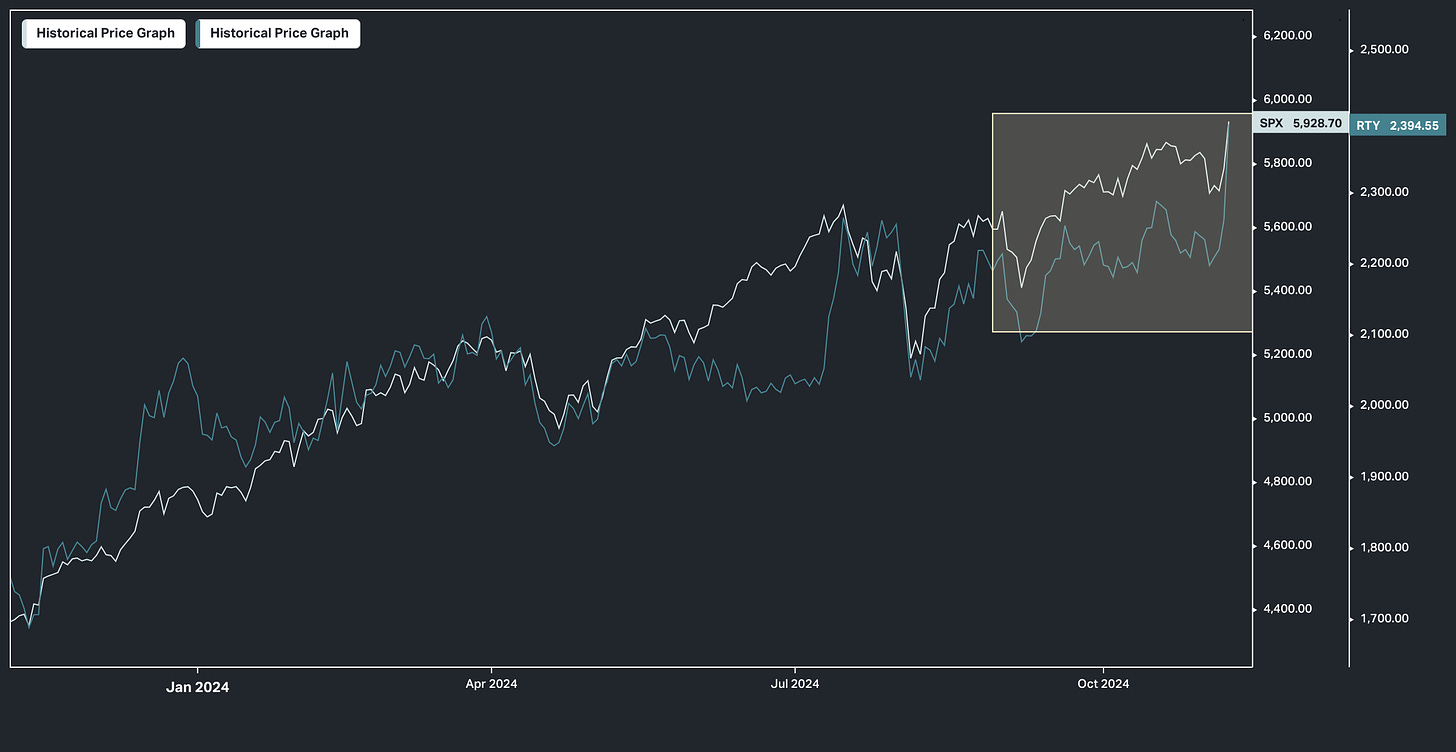Bumpy
Wall Street's major indices closed at record highs on Wednesday after Donald Trump won the 2024 presidential election, defeating Kamala Harris.
The S&P 500 rose 2.5%, the Nasdaq jumped 2.9%, and the Dow Jones soared 1,507 points, or 3.6%, marking its strongest session since 2022.
Leading the rally were sectors anticipated to benefit most from Trump's policies, including financials, energy, and industrials.
Major bank stocks like JPMorgan and Wells Fargo surged 11.5% and 13.5%, respectively to new highs, while Nvidia gained 4% and Tesla spiked 14.7%.
In contrast, real estate, consumer staples, and utilities lagged.
The Trump win comes with Republican control of the Senate and possibly control of the House (yet to be determined).
The Republicans need just 12 wins of the remaining 39 races to retain control of the House and give Trump an aligned Congress. That appears to have happened, but has yet to be officially called.
This means we'll have a pro-growth, pro-business, pro-American administration.
It (likely) also means the end of America's participation in the globally coordinated radical economic and social agenda that has been executed under the guise of "climate action."
Related to that, the Trump economic policy platform includes:
lifting restrictions on American energy production,
terminating the Green New Deal initiatives within the Inflation Reduction Act,
opposing the creation of a central bank digital currency.
And as we discussed last month, a big part of the return to embracing oil is preserving the world reserve currency status of the dollar.
With all of this, stocks had a huge day, led by the undervalued, underloved broader part of the stock market. We've talked about the divergence between small caps (the Russell 2000) and the big tech led, cap-weighted S&P 500. That narrowed aggressively today.
Oil stocks were up big, as suddenly oil and gas assets will need to reflect higher economic value given the likely removal of regulatory burdens (higher profitability and longer useful life). Financial stocks were up bigger, on the prospects of the removal of the regulatory noose, and a hotter business environment.
All of this said, we talked about the likelihood of the administrative state creating headwinds for policy execution. It happened in Trump's first term. And with a Trump team, this time, looking to root out waste and inefficiencies in the DC bureaucracy, we should expect the interference in Trump's second term will be even more severe.
We should expect the road to inauguration day to be bumpy.







